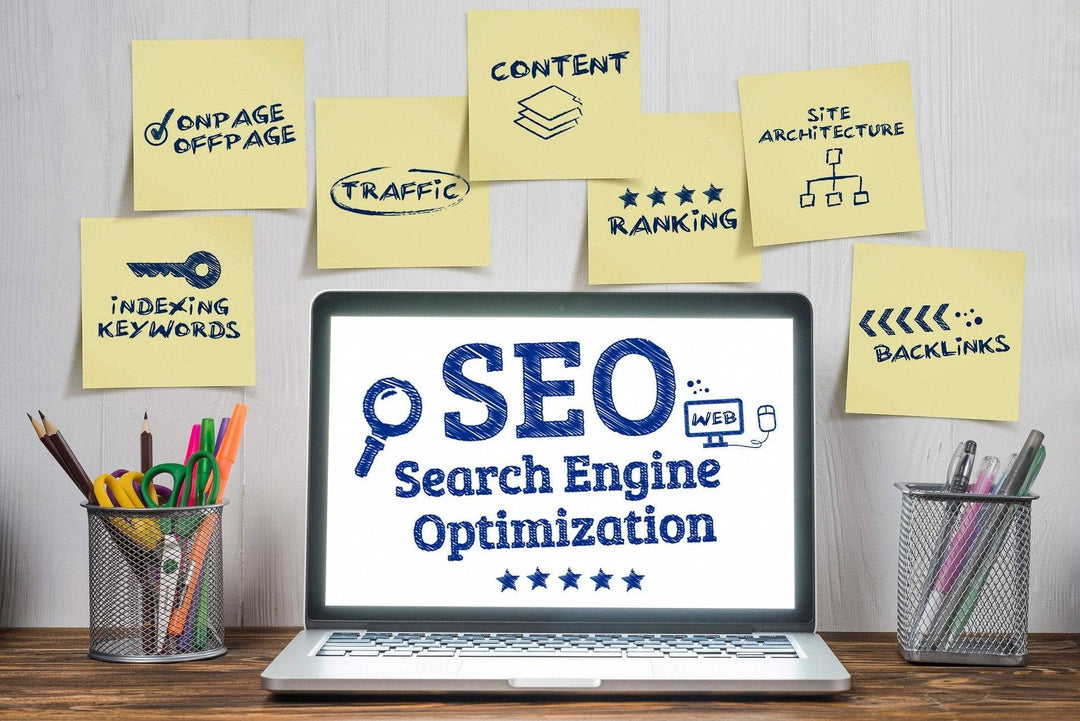Overview
Learn essential SEO strategies for your Shopify store to enhance visibility, attract targeted traffic, and boost sales. Key topics include keyword research, on-page optimization, image SEO, backlink building, and using AI tools. Regular content updates and monitoring metrics are crucial for ongoing success.
Frequently Asked Questions
1. Why is SEO important for Shopify stores?
2. What is the first step in implementing SEO for my Shopify store?
3. What are some on-page SEO techniques for Shopify?
4. How can I optimize images for SEO on my Shopify store?
5. How can I monitor and adjust my SEO efforts for my Shopify store?
In the rapidly growing world of eCommerce, understanding how to effectively utilize SEO (Search Engine Optimization) is critical for any Shopify store. With the right SEO strategies, you can improve your online visibility, rank higher in search engine results, attract more visitors, and ultimately increase sales. This article will guide you through the best SEO practices tailored specifically for Shopify, making it easier for potential customers to find you in a crowded market.
Why SEO Matters for Shopify Stores
SEO is fundamentally about enhancing the visibility of your online store in search engines such as Google. Properly optimized, your Shopify store can rise through the ranks of search results, ensuring that your target audience finds you when they search for relevant products. For eCommerce businesses, the increased traffic from higher search engine rankings often translates into higher sales and brand credibility.
Ultimately, an effective SEO strategy allows you not just to attract more visitors, but to attract the *right* visitors—those who are genuinely interested in the products you offer. With online shoppers increasingly relying on search engines to find what they need, mastering SEO for your Shopify store is a must.
Getting Started with eCommerce Keyword Research
The first step in your SEO journey is conducting thorough eCommerce keyword research. This process involves identifying the keywords and phrases your potential customers are using to search for products like yours. By understanding these terms, you can effectively tailor your website content to meet the needs of your audience.
Tools for Keyword Research
- Google Keyword Planner: A free tool that helps identify keywords and their search volume.
- Ahrefs: A comprehensive SEO tool that allows you to analyze competitors’ keywords and backlinks.
- Ubersuggest: This generator provides keyword suggestions along with data on their potential traffic.
- SEMrush: A robust SEO platform that offers an extensive suite of tools for keyword research and competition analysis.
When conducting your eCommerce keyword research, focus on long-tail keywords—phrases that are typically three or more words long. For example, instead of focusing on the broad term "shoes," try "best running shoes for women." Long-tail keywords are less competitive, more targeted, and typically have higher conversion rates.
On-Page SEO Techniques for Shopify Stores
Once you’ve identified the right keywords, it’s time to optimize your store. On-page SEO plays an essential role in enhancing your Shopify store’s visibility in search engines. Here are some best practices:
Title Tag Optimization
Your title tags are crucial as they communicate to search engines what your page is about. Each page of your store should have a unique title that includes the primary keyword you’re targeting. Keep it under 60 characters to ensure it displays properly in search results.
Meta Descriptions
Meta descriptions provide a brief summary of your webpage content. While they do not directly influence your search rankings, they play a critical role in improving your click-through rates (CTR). Write compelling meta descriptions (under 160 characters) that include your main keyword and encourage users to click on your link.
URL Structure
Ensure your URL structure is clean, descriptive, and includes keywords where appropriate. For example, instead of using default URLs like “shopify.com/product123,” customize it to read “shopify.com/best-running-shoes.” This not only improves SEO but also provides a better user experience.
Header Tags
Utilizing header tags (H1, H2, H3) properly can enhance readability and SEO. Use H1 for the main title of your page, followed by H2 for major sections, and H3 for subsections. This hierarchical structure allows search engines to understand your content better.
Content Optimization
Your product descriptions, blog posts, and other content should naturally incorporate your target keywords. Aim for at least 300 words on key pages, focusing on providing valuable information to your visitors. Avoid keyword stuffing; instead, aim for a natural flow that prioritizes user engagement.
Image SEO for Shopify
Images are a significant part of any online store, and optimizing them for SEO can drive traffic as well. Here’s how you can optimize images:
Image File Names
Before uploading images, rename the file to something descriptive that includes your target keyword. For example, instead of "IMG_1234.jpg," use “women-running-shoes.jpg.”

Alt Text
Alt text not only improves accessibility for those using screen readers, but it also gives search engines context about the image. Include relevant keywords in your alt text while keeping it descriptive and concise.
Building Backlinks
Backlinks are links from other websites that direct traffic to your Shopify store. They are a significant ranking factor for search engines, indicating credibility and authority. Here’s how to build backlinks effectively:
Guest Blogging
Writing guest posts for established blogs within your niche can be a great way to earn backlinks. Always include links to relevant pages on your Shopify store within your author bio or within the content, where appropriate.
Influencer Collaborations
Partnering with influencers can also lead to gaining valuable backlinks. Reach out to influencers within your industry and explore collaboration opportunities such as product reviews or sponsored content.
Engaging Content
Creating high-quality, engaging content that’s shareable can organically attract backlinks. Infographics, how-to guides, and rich media often encourage others to link back to your website.
The Role of AI Search Engines in SEO
As the digital landscape evolves, employing advanced tools like AI search engines for increasing eCommerce sales can simplify the SEO process for Shopify store owners. AI tools can analyze user behaviors, suggest relevant keywords, and provide insights into market trends, making it easier to tailor your approach and improve your overall strategy.
Benefits of Using AI Tools
- In-depth analysis of customer trends and preferences.
- Automated keyword suggestions based on various metrics.
- Real-time feedback on website performance and SEO effectiveness.
- Enhanced understanding of competitive strategies in your niche.
Leveraging AI technology can revolutionize how you approach SEO, making your Shopify store more competitive and geared for profit.
Creating a Blog on Your Shopify Store
A blog can be a fantastic tool for boosting SEO. Regularly publishing high-quality, keyword-rich content helps establish your authority within your niche. Here’s how to do it effectively:
Identifying Topics
Utilize your eCommerce keyword research to identify trending topics that resonate with your target audience. Focus on FAQs, tips, and guides related to your products, as these types of content tend to perform well in search engines.
Consistent Updates
Consistency is key when it comes to blogging. Aim to publish new content on a regular schedule—whether weekly, biweekly, or monthly—to keep your audience engaged and boost your SEO efforts.
Promoting Your Blog Posts
Don’t forget to promote your blog both on social media and through email marketing to drive traffic back to your Shopify store. Engaging content that resonates with your audience can increase shares and referrals, further building your backlink profile.
Monitoring and Adjusting Your SEO Strategy
SEO is not a one-time effort; it requires ongoing analysis and adjustment. Utilize tools such as Google Analytics and Google Search Console to monitor your traffic, bounce rates, and keyword performance. Identifying which strategies are working and which aren’t can help you refine your approach over time.
Key Metrics to Track
- Organic traffic growth over time.
- Keyword rankings for targeted phrases.
- Page load speed and user engagement metrics.
- Conversion rates from organic search traffic.
By keeping a close eye on these metrics, you can pivot and adapt your SEO strategies to ensure sustained growth and success for your Shopify store.
Final Thoughts: Your Path to Shopify SEO Success
Embarking on your SEO journey can feel overwhelming, but by following these best practices, you can enhance the visibility and profitability of your Shopify store. Keep in mind, SEO is not just about ranking; it’s about building a connection with your audience and providing them with the value they seek. With dedication, continuous learning, and an adaptable strategy in place, your Shopify store can thrive amidst competition, driving traffic and increasing sales effectively. Stay patient, stay informed, and watch as your eCommerce venture flourishes through the power of SEO!
Linked Product

eCommerce SEO
The eCommerce SEO Pro Plan offers comprehensive support for online stores looking to enhance their search engine visibility. With initial optimization for the home page and additional pages, along with ongoing keyword research and monthly SEO reports, it provides a structured approach to improving site performance. The plan also includes onsite optimization and content creation, making it suitable for businesses aiming to strengthen their overall SEO strategy.
View ProductExplore the creations of a fellow Shopify or Wix store owner. Follow this link to their online store. Please be advised that this is a promotional link, and we cannot guarantee the content of the linked store.






Leave a comment